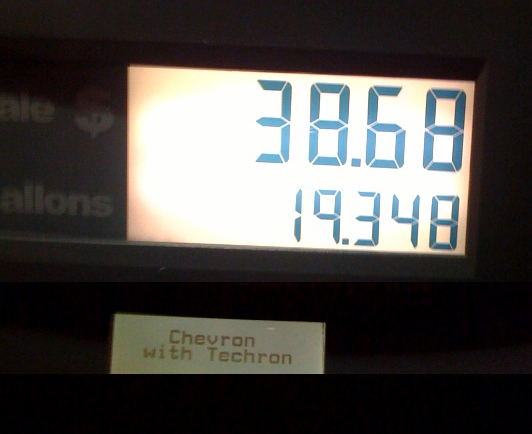A month ago, it cost close to $100 to fill up my 20 gallon SUV. This weekend, it just under $40.00 (the same amount it cost back in 2003). Measured in either time or price - it's a stunning decline / change. A month ago, television commercials, marketing campaigns and sales were tailored around saving money on gas (a great Netflix example is here). Now, those promotions are based on savings and financing. Also a drastic, immediate change.

There is a great WSJ article describing the implications of the rising / falling gas prices: Americans Drive Less, Creating a Problem - Less Consumption Means Lower Gas Prices, Will We Go From 'Shock to Trance' Again?
When gasoline prices shot over $4 a gallon this summer, Americans didn't wait for Washington to respond with an energy policy. They took action on their own by driving less and switching to more fuel-efficient cars. The results are dramatic, but also problematic.
The good news is that gasoline consumption has fallen compared with a year earlier in every month from March through September of this year, according to data from the Energy Information Administration. Vehicle miles traveled -- the wonky term for how much we drive -- have dropped for 11 straight months, and fell 4.4% in September, according to the Department of Transportation....
In short, many Americans, by choice or by default, did what the people who worry about the climate and U.S. dependence on petroleum wanted them to do. They burned about 5% less gasoline in August than a year ago, according to Energy Information Administration data.
By jamming the brakes on driving, rediscovering mass transit and walking past Hummers to buy compact cars like the Honda Fit, American consumers caused big trouble for powerful interests. The question now is how will those interests respond?
